TL;DR:
- Artificial Intelligence (AI) excels in deep data insights and strategic decision-making, while robotics optimizes physical task automation with precision.
- Startups must evaluate whether 'ai vs robotics' aligns better with their operational goals before implementation, considering cost-effectiveness alongside functionality.
- Combining both technologies could potentially unlock synergistic benefits not achievable when used separately—an approach worth exploring particularly within dynamic industry environments.
- Machine learning enables startups to harness powerful predictions from large datasets, while ethical considerations will guide future developments ensuring transparent and accountable algorithms.
- Both AI and robotics bring transformative changes but require careful consideration regarding job displacement versus creation, ethical programming, and cultural adaptation.
Ever felt torn between the high-tech worlds of AI and robotics, wondering which reigns supreme? You're not alone. Entrepreneurs and tech enthusiasts alike grapple with choosing the right tool for the job. But what if we told you that each has its own superpowers in shaping our future? This post isn't just a showdown; it's your guide to understanding how AI's brainy algorithms and robotics' brawny mechanics excel in different arenas. From decision-making prowess to industrial muscle, we've got the scoop on where each stands tall. Dive into our friendly face-off as we explore ai vs robotics – because knowing is half the battle in innovation!
AI vs Robotics in Decision Making: The Startup Perspective
When it comes to startups, the debate of 'ai vs robotics which is better' is more than just a technical comparison; it's about choosing the right technology that aligns with your business goals and innovation trajectory. So, let's delve into how AI and robotics shape decision-making processes in startup environments.
Understanding the Role of AI in Decision Making
Artificial Intelligence (AI) has become synonymous with innovation, especially for startups looking to disrupt traditional markets or create new ones. Unlike conventional software, AI systems can analyze vast amounts of data, learn from patterns, and make predictions or decisions without explicit programming for each scenario.
For example, an AI-driven idea generator can help entrepreneurs explore untapped market niches by analyzing trends and consumer behavior. It's not just about crunching numbers; it’s about deriving insights that can guide strategic planning and creative thinking.
"The power of AI lies in its ability to sift through the noise and identify signals that humans might miss."
This capability extends into operational efficiency as well. Startups can leverage AI to optimize their supply chains, personalize customer experiences at scale, or even manage their finances with tools like QuickBooks (is QuickBooks the best business plan tool?) enhanced by intelligent algorithms.
Robotics' Impact on Decision-Making Processes
Robotics, on the other hand, brings a physical dimension to technological advancements. Robots are excellent at performing repetitive tasks with precision and consistency—attributes crucial for manufacturing startups or businesses requiring high levels of accuracy.
Imagine a food-based startup where simple food business ideas come to life through robotic arms preparing dishes with artisanal perfection every single time. Here, robotics directly influences decision-making related to production quality control and efficiency.
Yet robots are also evolving beyond mere task executors. With the integration of AI capabilities, robots can now make real-time decisions based on sensor input and programmed intelligence—transforming them from automated machines into autonomous agents capable of adapting to new situations.
Weighing Efficiency vs Innovation
In terms of efficiency, both technologies offer compelling advantages but cater to different aspects of startup operations. While robotics excel in streamlining production processes (enhancing data with analysis software), AI shines when it comes to making sense of complex datasets for strategic decision-making (2024 business analysis questions trend watch).
However, when we consider innovation as a driving force for startups looking towards future growth (exploring 2024's innovative business ideas with explanation), AI seems to have an edge due to its broader application scope across various industries—from healthcare diagnostics powered by machine learning algorithms to marketing strategies devised by predictive analytics models.
The Human Element in Tech-Based Decisions
No matter how advanced these technologies become, human oversight remains crucial. Whether it’s an entrepreneur validating their latest concept (validate your ai business idea) or a developer fine-tuning an algorithm (solving complex ai problems), human creativity and ethical judgment play pivotal roles in steering these technologies towards beneficial outcomes.
Moreover, integrating either technology within a startup involves considering not only the cost-benefit analysis but also the impact on team dynamics and company culture—factors essential for long-term success (thriving ai company ideas 2024).
Final Thoughts: Choosing What's Best for Your Startup
As we've seen throughout this discussion on 'ai vs robotics which is better', there isn't a one-size-fits-all answer. It depends largely on your specific industry needs, operational requirements, and long-term vision for your company. For instance:
-
If you're running a tech-heavy startup where data drives everything from product development to customer engagement strategies (transforming industries with ai business services), investing in sophisticated AI platforms could be your best bet.
-
Conversely, if you're spearheading an enterprise that relies heavily on manufacturing or physical tasks (consider checking out boost income with simple side business ideas for inspiration), then implementing robotic systems may yield higher returns in productivity gains.
-
And if you’re sitting at the intersection where digital meets physical—a smart logistics solution perhaps—the integration of both AI and robotics might unlock synergies propelling you ahead of competitors (business expansion with market and growth strategies).
Take Away
- Artificial Intelligence is key for startups needing deep data insights while robotics optimizes repetitive physical tasks.
- A combination of both technologies may provide comprehensive benefits when aligned with specific industry demands.
- Human intuition and ethical considerations remain indispensable regardless of technological advancements.
AI vs Robotics in Industry Applications
When it comes to integrating cutting-edge technology into business, startups are often at the forefront of innovation. Two of the most buzzworthy advancements today are artificial intelligence (AI) and robotics. While they may seem similar, AI and robotics serve different purposes and offer unique benefits for various industry applications. In this exploration of ai vs robotics, we'll dive into how these technologies shape industries and why one might be better suited than the other for specific tasks.
AI Applications in Industries
Artificial intelligence has become a game-changer for countless sectors, from healthcare to finance, offering capabilities that range far beyond human limitations. The beauty of AI lies in its ability to learn, adapt, and optimize processes over time.
One prime example is the use of AI in data analysis software. By harnessing the power of machine learning algorithms, businesses can sift through massive datasets to uncover insights that would take humans years to analyze. This capacity for rapid data processing enables companies to make informed decisions swiftly, leading to increased efficiency and a competitive edge.
In marketing, AI tools like chatbots provide personalized customer service without the need for round-the-clock human support teams. These intelligent systems not only respond to inquiries but also learn from interactions to improve future communications.
"AI is reshaping industries by automating complex tasks, analyzing big data with incredible speed and accuracy, and delivering personalized experiences."
Moreover, AI's role in content creation cannot be understated. With natural language processing capabilities, AI can now produce written content that rivals human writers in both speed and sometimes even creativity. As an educational tool, it empowers students and professionals alike by providing instant access to knowledge tailored specifically to their needs.
Robotics Applications in Industrial Settings
On the other side of the coin is robotics—a branch of technology that deals with physical robots designed to carry out tasks autonomously or semi-autonomously. Unlike AI software solutions which exist within computers or on cloud servers, robots are tangible entities you can see moving around on factory floors or even performing surgeries.
Robots shine brightest where precision and endurance come into play—think assembly lines where products need assembling with exactitude or environments hazardous for humans such as deep-sea exploration or defusing explosives.
A key area where robotics takes center stage is manufacturing. Companies like car manufacturers have been utilizing robotic arms for decades due to their ability to work tirelessly without error or fatigue—qualities essential for mass production workflows.
Robotics has also made strides in healthcare with inventions like surgical robots allowing doctors greater precision during operations while minimizing invasiveness compared to traditional surgery methods.
While AI project ideas often focus on what happens behind a screen, robotics projects usually involve building devices that interact with the real world—whether it's drones surveying land or robots assisting elderly patients with mobility issues.
Weighing Up 'AI vs Robotics': Which Is Better?
The question of whether ai vs robotics is better isn't quite accurate—it's more about which technology is best suited for a particular application. In some cases, integrating both could lead to optimal results; consider an autonomous vehicle guided by both sophisticated AI algorithms and physical robotic components like sensors and actuators.
For startups looking at these technologies as potential avenues for growth or product development should assess their specific needs before deciding:
- Does your startup require intelligent analysis and prediction capabilities? If so, leaning towards AI business services might be your best bet.
- Are you looking at automating physical tasks within a controlled environment? Here's where robotic solutions would come into play.
- Could combining both offer a comprehensive solution? Think about how collaborative robots (cobots) work alongside humans while being powered by AI-driven insights.
Practical Considerations
When considering implementing either technology within your startup's operations or offerings:
- Evaluate your budget constraints – high-end robots might offer incredible benefits but can come with significant costs.
- Consider scalability – while some robotic systems are difficult to scale up due to their complexity and space requirements; cloud-based AIs can often scale effortlessly.
- Look at flexibility – if your needs might change rapidly over time; an adaptable AI system could provide more value than specialized robotic equipment.
- Think long-term – investing in training staff members on how best utilize these technologies will ensure sustained returns on investment down the line.
Take Away
- Artificial intelligence excels in data processing and offers adaptability across digital applications whereas robotics stands out in physical task automation requiring precision.
- Startups must evaluate whether ai vs robotics aligns better with their operational goals before implementation considering cost-effectiveness alongside functionality.
- Combining both technologies could potentially unlock synergistic benefits not achievable when used separately—an approach worth exploring particularly within dynamic industry environments.
With this deep dive into ai vs robotics within industry applications complete remember there’s no one-size-fits-all answer here but rather a strategic decision based upon individual startup objectives!
Efficiency Comparison: AI and Robotics
When you're a startup looking to make waves in the tech world, choosing the right tools and technologies can be like picking a winning horse at the races. Two thoroughbreds in this race are Artificial Intelligence (AI) and Robotics. But here's the million-dollar question: ai vs robotics which is better?
Both AI and robotics are taking the tech world by storm, but they serve up efficiency and performance in different flavors. So, let's dive into this friendly duel between these two titans of technology.
Efficiency Benefits of AI
Imagine having a digital brainpower that never sleeps or gets tired—that's AI for you! It's like having your own personal army of thinkers who can analyze data faster than you can say "efficiency." AI excels at tasks that require cognitive abilities, such as learning from data patterns, making decisions based on complex algorithms, or even understanding human language.
AI isn't just about thinking; it's also about adapting. The more data it chews on, the smarter it gets. It's perfect for startups because it scales with your business. As your customer base grows and your data swells, AI keeps up without breaking a sweat.
Let's say you're running an online store. An AI-driven recommendation system could suggest products to customers based on their browsing history—talk about personal shopping at its finest!
"In an age where time is money, AI is like having an endless supply of both."
Now think about customer service. An AI chatbot can handle thousands of customer inquiries simultaneously, providing instant responses that keep customers smiling while freeing up human agents to tackle more complex issues.
Performance Advantages of Robotics
On the flip side, robotics is all about action—physical action to be precise. These mechanical marvels shine in environments that require precision, speed, and endurance beyond human capabilities.
Robots are fantastic at repetitive tasks. They don't get bored or distracted; they just keep going like well-oiled machines—because they are machines! In manufacturing or assembly lines where consistency is key, robots ensure that every product meets quality standards.
Robotics has revolutionized industries by taking over dangerous jobs too risky for humans. Whether it’s defusing bombs or exploring deep-sea vents, robots do it without breaking a robotic sweat (if there were such a thing).
Consider warehousing operations where picking and packing can be labor-intensive. Introducing robotics into the mix streamlines these processes with remarkable speed and accuracy—transforming logistics into a high-efficiency spectacle.
Balancing AI with Robotics
The true magic happens when you combine AI with robotics; this duo becomes an unstoppable force of efficiency and performance. Imagine robots equipped with sensors feeding data back to an AI system that learns and optimizes their movements over time—this isn't science fiction; it's happening now!
Startups leveraging both technologies are ahead of the game—they're able to automate not just their digital operations but also their physical ones. From self-driving cars navigating busy streets using real-time data analysis to drones delivering packages guided by sophisticated algorithms—it’s clear that together these technologies create a synergy that’s tough to beat.
However, while we've seen how each contender holds its ground in certain areas—the cognitive prowess of AI versus the mechanical might of robotics—the answer to "ai vs robotics which is better" really depends on what race you're running.
For startups focused on services requiring decision-making or pattern recognition—think finance or healthcare—AI might be your star player. But if your startup deals with physical goods or operates in an environment where manual tasks reign supreme—like agriculture or manufacturing—robotics could take home the trophy for you.
Take Away
- AI excels in cognitive tasks and scalability; perfect for data analysis & decision-making.
- Robotics thrives on physical tasks requiring precision & endurance; ideal for manufacturing & logistics.
- Combine both for ultimate efficiency – use AI brains with robotic brawn for groundbreaking innovation.
The Future of AI and Robotics: Innovations and Trends
In the dynamic world of technology, the debate between ai vs robotics often surfaces as enthusiasts and experts ponder which field will lead the future. While both are distinct in their capabilities, they share a common goal: to revolutionize how we live and work. This blog section dives into the innovations in AI and robotics, exploring emerging trends shaping their future.
Innovations in AI for Startups
Artificial intelligence (AI) is more than just a buzzword for startups; it's a powerful tool that can drive innovation, automate processes, and offer insights that were previously unattainable. From AI-driven idea generators to sophisticated data analysis software, AI is transforming how startups approach business.
One of the most significant innovations is machine learning – an AI subset where algorithms improve through experience without being explicitly programmed. It's like teaching a computer to learn from data patterns, enabling it to make predictions or decisions with minimal human intervention.
"Machine learning isn't just a futuristic fantasy; it's here now. It allows us to process massive amounts of data quickly and accurately, making it an indispensable tool for startups."
Another area where AI shines is customer service. Chatbots powered by natural language processing can handle customer inquiries 24/7, providing instant responses that enhance user experience while freeing up human resources for more complex tasks.
Emerging Trends Shaping the Future of AI and Robotics
As we look towards the future, several trends stand out in shaping how artificial intelligence and robotics will evolve:
-
Interdisciplinary Integration: The integration of AI with other fields like neuroscience or cognitive science could lead to breakthroughs in creating machines that can understand or even replicate human behavior.
-
Ethical AI: As we entrust more critical decisions to algorithms, ethical considerations become paramount. Transparent algorithms that can be audited and held accountable will likely become standard practice.
-
Robotics as a Service (RaaS): Like SaaS businesses today, RaaS models could allow companies to use robotic services on-demand without investing in ownership or maintenance – think drones for delivery or inventory management robots.
-
Cobots: Collaborative robots designed to work alongside humans safely are gaining traction in manufacturing environments. They're not replacing humans but enhancing productivity by taking over repetitive or dangerous tasks.
-
AI-Powered Automation: Automation isn't new but coupling it with AI takes efficiency to new heights. From analyzing big data sets to optimizing logistics routes, automation driven by intelligent algorithms is set to disrupt every industry sector.
-
Personalized Products: With deep learning capabilities, companies can offer highly personalized products based on individual consumer preferences gathered from data analysis – this personal touch was once only possible with bespoke services.
-
Smart Cities: Imagine cities where traffic flows smoothly thanks to real-time data analysis of road conditions or public services are automatically scheduled based on predictive models – this is what smart city initiatives aim to achieve with the help of robotics and AI technologies.
-
Healthcare Revolution: Both fields have tremendous potential in healthcare – from robotic surgeries offering precision beyond human capability to AI systems predicting outbreaks before they happen based on health data trends.
-
Educational Advancements: In education too, these technologies promise personalized learning experiences where content adapts dynamically according to student performance metrics analyzed by AI systems.
- Space Exploration: NASA already uses rovers equipped with autonomous navigation systems on Mars; further advancements could see robots undertaking missions too dangerous for humans while being managed remotely through advanced artificial intelligence systems back on Earth.
Take Away
- Machine learning enables startups to harness powerful predictions from large datasets.
- Ethical considerations will guide future developments ensuring transparent and accountable algorithms.
- Robotics as a Service (RaaS) models might soon provide flexible access to robotic capabilities for businesses across various sectors.
Remember that while discussing "ai vs robotics which is better," it's essential not just think about competition but also collaboration between these two fields as they continue shaping our world together!
AI and Robotics: Impact on Workforce and Society
In today's rapidly evolving technological landscape, the distinction between artificial intelligence (AI) and robotics becomes increasingly significant. As we delve into the topic of ai vs robotics which is better, it's essential to understand that both fields, while interconnected, have distinct impacts on our workforce and society.
Automation's Influence on the Workforce
Automation has been a buzzword for decades, conjuring images of machines taking over human jobs. But what does this mean in the context of AI and robotics? AI is fundamentally about algorithms—software that can learn from data and make decisions. This technology has permeated industries far beyond manufacturing, reshaping sectors like finance with analysis software that predicts market trends, or healthcare with systems that diagnose diseases.
Robotics involves the physical embodiment of AI in machines that interact with the physical world. When robots take over tasks such as assembly line work or warehouse logistics, they often do so more efficiently than humans could. However, it's not just a story of job displacement; it’s also one of transformation. Jobs are being created in robot maintenance, AI programming, and data analysis—a trend thoroughly examined in articles like "2024 Business Analysis Questions: Trend Watch".
"The future is not about choosing between humans or robots; it's about integrating both to create a symbiotic workforce."
Societal Implications of AI and Robotics Integration
The integration of AI and robotics goes beyond economic factors; it shapes societal norms and ethics too. Consider self-driving cars—an amalgamation of AI and robotics technology. They promise fewer accidents but also raise questions about decision-making in critical situations.
In healthcare, robotic surgery aids precision but must navigate patient trust issues. And as AI systems become decision-makers—in loan approvals or recruitment processes—they must be programmed to avoid biases that could perpetuate inequality.
These societal implications highlight why businesses must consider more than just profitability when adopting these technologies. Startups at the forefront of innovation often lead by example through their responsible use of AI in entrepreneurship (AI Revolutionizes Startup Success).
The Ethical Dimension
One cannot discuss the societal impact without addressing ethics in automation. As machines are given more autonomy to make decisions that affect human lives, establishing ethical guidelines becomes paramount. This isn't just science fiction; initiatives like autonomous weaponry demand immediate attention to ethical considerations.
The Education Gap
There's also an education gap that needs bridging as new technology emerges. Not everyone will intuitively understand how to interact with advanced robotics or leverage AI for their benefit—highlighting the need for resources like "Exploring Top Trends for Great Business Plan Ideas" which provide insights into navigating a tech-driven business landscape.
Cultural Shifts
Culturally, we're seeing shifts towards valuing digital literacy alongside traditional skills—a move that startups can capitalize on by developing innovative educational tools (as seen in AI Project Ideas to Spark).
Conclusion: Navigating Between ai vs Robotics Which Is Better?
When considering ai vs robotics which is better, remember that 'better' is contextual—dependent on application areas, desired outcomes, ethical considerations, and adaptability within society.
For entrepreneurs looking to dive into these technologies while maintaining social responsibility—resources such as "Validating Startup Idea Readiness" offer a starting point for developing business ideas aligned with current tech trends without losing sight of human-centric values.
For those aiming to stay ahead in industry developments—the article "Transforming Industries with AI Business Services" provides an excellent overview of how companies are leveraging both fields to revolutionize traditional practices.
And finally—for anyone seeking inspiration or guidance on incorporating these innovations into their ventures—the post "Ignite Innovation with a Business Plan for New Ideas" sheds light on strategies for embedding cutting-edge tech into your startup plans effectively.
Take Away
- Both AI and robotics bring transformative changes but require careful consideration regarding job displacement versus creation.
- Ethical programming and cultural adaptation are crucial as we integrate these technologies into various aspects of life.
- Startups should leverage available resources to responsibly incorporate AI and robotics into their business models while considering societal impact.
Conclusion
Frequently Asked Questions
AI vs Robotics: Which is better?
Q: What is the difference between AI and robotics?
A: Artificial Intelligence (AI) refers to the simulation of human intelligence in machines, while robotics involves the design and creation of robots to perform specific tasks.
Q: Which is more advanced, AI or robotics?
A: Both AI and robotics have advanced significantly in recent years, but they serve different purposes. AI focuses on intelligent decision-making and problem-solving, while robotics emphasizes physical interaction with the environment.
Q: Can AI and robotics work together?
A: Yes, AI and robotics often complement each other. AI can enhance the capabilities of robots by enabling them to make autonomous decisions based on data analysis and machine learning.
Q: In what areas is AI more beneficial than robotics?
A: AI excels in data analysis, pattern recognition, and decision-making processes. It is widely used in fields such as healthcare, finance, and customer service.
Q: How does robotics outperform AI in certain applications?
A: Robotics is advantageous in tasks that require physical interaction and manipulation of objects, such as manufacturing, logistics, and space exploration.
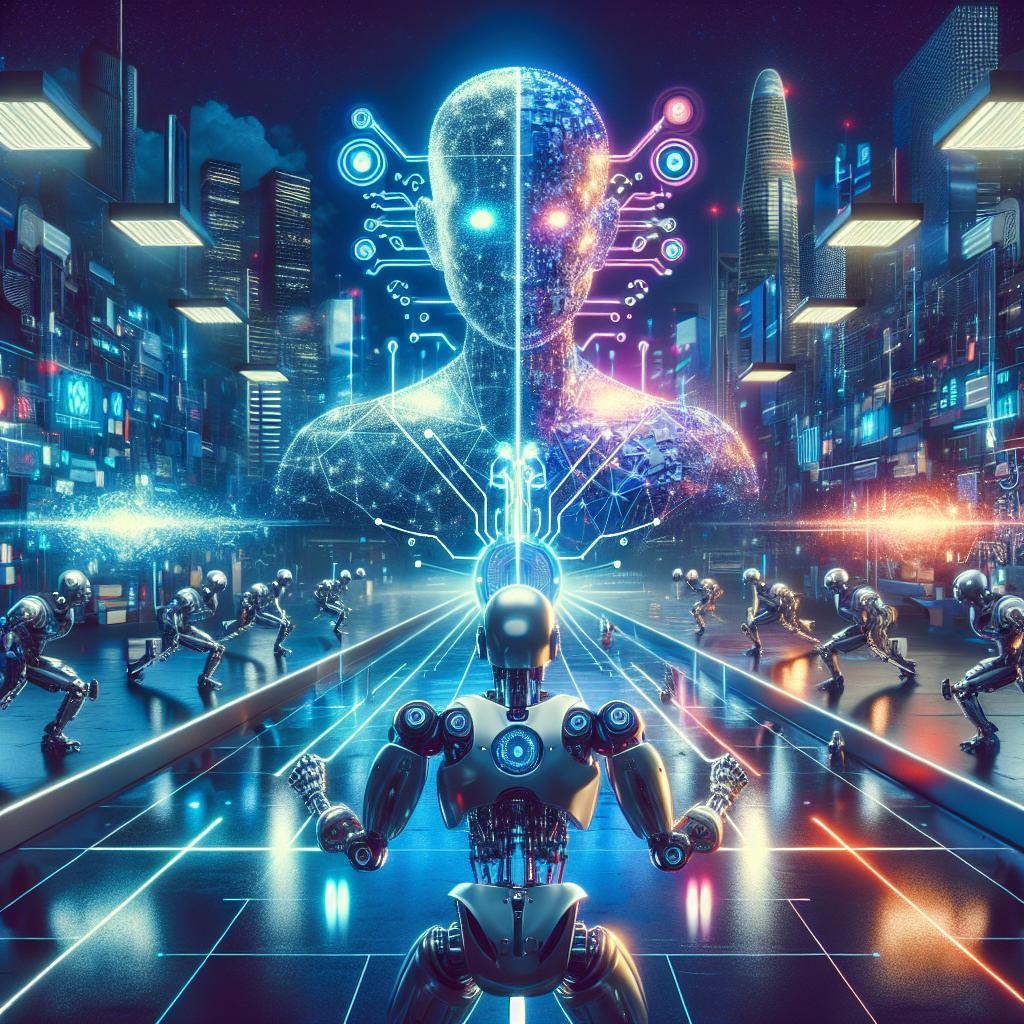
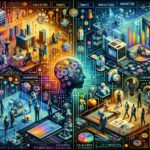
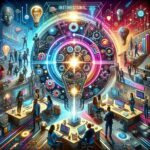
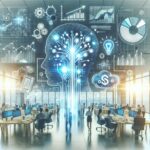
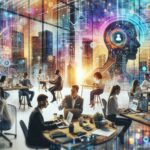
Leave a Reply